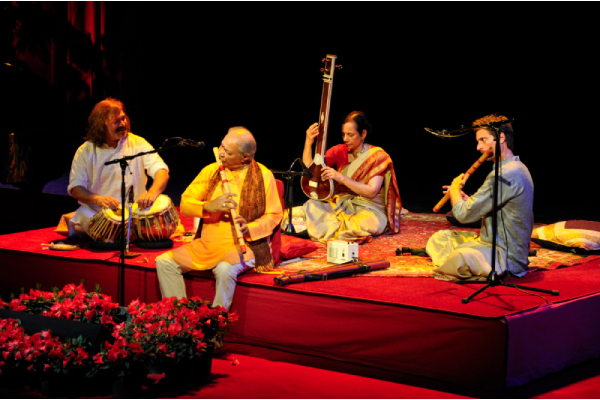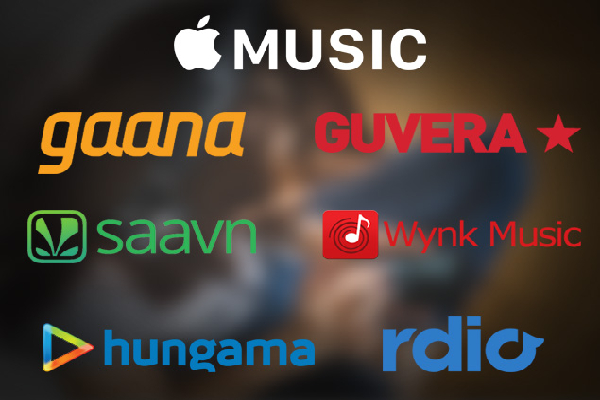A Brief Introduction:
Children develop numeracy, reading, and emotional abilities by listening to and making music. Early on, incorporating music into rituals or play has a positive impact on your child’s early development. Because most activities use only one side of their brains, it can get kids moving, thinking, and creating while also strengthening key brain connections (logical). Above all, listening to or playing musical instruments is enjoyable, which promotes an open mind when it comes to learning new topics at school!
Because noises are continually changing, listening to what’s around you builds critical-thinking skills like problem solving: Each note builds on the previous one until they all come together at the same time, similar to how puzzle pieces are mixed together.
Simple Musical Instruments Can Be Made:
Making musical instruments can be a lot of fun and allows you to express yourself creatively. Filling small, empty plastic bottles with different types of rice or beans, for example, that produce diverse noises when shaken together in rhythmic patterns – like shaking maracas! – is an easy way to get started.
Another suggestion is to make shakers out of dried seeds or stones, which, depending on the material used, can produce highly pleasing sound effects. Following that, we have drums fashioned out of pots and pans: To construct different sized percussion pads, hammer metal bottle tops into pieces of wood, then use dowelling sticks as drumsticks (or even chopsticks!) for an entertaining beat-box style performance!
Musical Encounters Of Various Kinds:
Singing, listening to or making up songs, and nursery rhymes are examples of musical experiences. Acting out lyrics will be entertaining, as will dancing to music played in a specific rhythm on homemade instruments such as drums, while others will be entertained by CDs and DVDs.
Create A Musical Atmosphere:
Music is something that children adore. Playing with different instruments is one approach to make it more interesting. Set up a space for this activity outside or within your home, then gather all of the instruments and invite kids to try them out. This will allow you to discuss how each instrument differs from the others, as well as teach them some new vocabulary phrases such as “quack,” “crunch,” and others that they may not have heard before! .
Audio-Play is a fantastic method to connect with your kids. Allow them to play the instruments on their own first, and then let’s make music together! Play a simple beat and have him or her repeat it while playing their chosen instrument. To shake things up, consider changing careers so you may follow his lead for a change! Use recorded music to inspire activity, whether it’s on the spot or dancing along (or both!).
This will also give your child the opportunity to connect noises he hears with how they sound when conveyed via other portions of our bodies, such as singing out loud if we hear someone singing loudly from afar.
Improve Your Coordination And Fine Motor Skills:
Music isn’t simply about the ear, but it does a better job of honing that skill than any other topic. Learning to play an instrument requires developing hand-eye coordination, ear-to-eye coordination, and fine motor skills such as drumming or stroking the ivories of a piano.
Improve Your Language Skills:
Music is just as crucial for language development as it is for language development in adults, and it can be especially beneficial to youngsters. Music uses the same areas of the brain that are needed to acquire a second language or a new dialect, according to science. Singing with others builds neural circuits that are important for electronic communication and comprehension; learning new melodies increases these circuits even more than studying vocabularies from educational materials alone!
When it comes to formal schooling, children who excel at verbal communication have an advantage, but this advantage improves over time thanks to their musical skillset – not what you believe listening will provide them!
Learning how instruments operate strengthens the networks connecting different sections of the auditory cortex, similar to how looking back at past letters strengthens the networks linking different sections of the auditory brain.
Improve Your Memory And Concentration:
Piano études are an excellent approach to increase concentration and memory. Working through even a simple piece can improve your hand-eye coordination, physical recall, and mental endurance, all of which are important for mastery!
You’ll notice an improvement in these abilities as you play them again and again. Because repetition is so effective at reinforcing memories, kids who practise regularly like this build skill fast.
Enhance your basic math skills
Mozart’s Influence
The little black dots that rise and fall on a scale appear to have no relation to piano keys or guitar chords. However, for children who can read music, these dots provide a wealth of information regarding which keys to push when playing the trumpet in an orchestra. This is referred to as pattern recognition in mathematics. College students were given spatial activities such as drawing out lines from paper puzzles that displayed grids with varying numbers of rows and columns printed off-center within them; some had one set number while others had multiple sets, making counting difficult (Boroditsky).
It has been discovered that listening to Mozart’s music makes people smarter. Participants who performed a math test whilst listening to Mozart completed it faster and more accurately than those who did not have any background noise, such as classical or jazz music. Even if the exams did not cover areas explicitly relevant to spatial skills, such as advanced maths, improved scores in overall can be demonstrated by just playing a variety of soothing sounds before taking a quiz on topics unrelated to geometry or trigonometry!
Discipline and teamwork should be improved.
The importance of hard labour is a concept that many children must learn on their own. A daily music practise programme is a genuine discipline that will educate your child, regardless of age, the genuine advantages of putting in some time and effort. Joining any instrument-based ensemble, whether massive school orchestras or rock bands, improves collaboration and the general great feeling connected with collaborating toward shared goals with those who share their passion.
Boost Your Self-Belief And Self-Esteem
Improving self-esteem and confidence might be difficult, but with the right coaching, it is doable. Success comes rapidly when youngsters are placed in circumstances where they can work on their own talents incrementally at their own pace of learning. They quickly realise that most of these achievements are the result of their own hard effort, whether alone or with others; this realisation empowers them when deciding on the next stage to take while also boosting other areas, such as music performance, because performing demonstrates strength!






